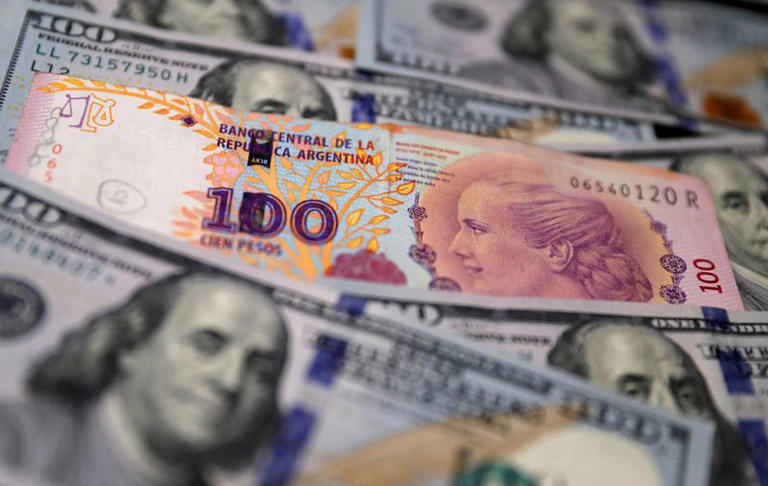On Monday, Argentina witnessed a dynamic day in its financial markets, shaped by new economic measures introduced under President Javier Milei’s administration over the weekend. These policies aimed at curbing inflation and stabilizing the economy, focusing prominently on halting the expansion of the monetary base and addressing looming bond payments.
The Argentine government, through its economy minister, unveiled a strategic plan that included a decisive $1.5 billion purchase from the central bank. This move was specifically earmarked to fulfill upcoming bond interest obligations due in January, signaling proactive steps to manage fiscal pressures and maintain financial stability. The announcement underscored a shift towards tighter monetary controls, aiming to rein in the country’s persistent inflationary trends that have plagued its economy.
In response to these developments, the parallel market peso appreciated significantly against the U.S. dollar on Monday, marking a notable 6.01% gain to reach 1,415 pesos per dollar by the close of trading. This appreciation built upon an initial uptick of approximately 2% seen during early trading hours. The strengthening of the parallel market exchange rate represented a notable adjustment, contributing to a reduction in the gap between the unofficial “blue” rate and the official exchange rate, which had widened to around 60% in recent weeks but moderated to 53% following the policy announcements.
While the currency market responded positively, the Argentine stock market painted a starkly different picture. The benchmark Merval index, a key indicator of market sentiment, plummeted by over 12% during the trading session. This steep decline reflected investor apprehensions and reactions to the broader economic adjustments and policy announcements. Similarly, over-the-counter bond prices also experienced a downturn, slipping by 3% as market participants evaluated the implications of the new economic measures on Argentina’s financial landscape and investment climate.
Market analysts and financial experts cautiously welcomed the government’s proactive stance and the announced economic measures. They noted that the success of these initiatives would hinge critically on their ability to sustainably narrow the exchange rate gap and effectively curb inflationary pressures over the medium to long term. The effectiveness of these policies in stabilizing the economy and restoring investor confidence will be closely monitored in the coming months.
Overall, while the Argentine parallel market peso demonstrated resilience and strengthened against the U.S. dollar in response to new economic policies aimed at financial stabilization, the local stock market faced significant turbulence. The contrasting movements underscored the complex challenges and opportunities in Argentina’s economic landscape, highlighting the delicate balance between policy reforms, market sentiment, and economic stability.
